#Hydrogen
Dan Akerson Talks Down Hydrogen, Reveals Natural Gas Plans In Extended Interview
In an extended interview with Fareed Zakaria this weekend, GM CEO Dan Akerson repudiated a lot of GM’s previous optimism about hydrogen fuel cell cars, saying
We’re looking at hydrogen fuel cells, which have no carbon emissions, zero. They’re very expensive now, but we’ve, just in the last two years, reduced the price of that technology by $100,000. The car is still too expensive and probably won’t be practical until the 2020-plus period, I don’t know. And then there’s the issue of infrastructure
The DetN points out that GM had previously said that it would have anywhere from 1,000 to “hundreds of thousands” of fuel cell cars on the road by 2010, and most recently said (in 2009) that the technology would be “commercialized” by 2015 and “cost-competitive” by 2020. So, if hydrogen is moving to the back burner, what’s moving up? Akerson revealed that
soon we’ll be introducing “bi-fuel” engines which can burn both compressed natural gas and liquid gasoline.
We’ve seen GM take early steps towards bringing a natural gas-powered car to the road, but this is the first sign from a top executive that a dual-fuel car is a certainty in GM’s near future. By talking down hugely expensive hydrogen cars and talking up cheap natural gas powerplants, Akerson sends a strong message that GM’s green car efforts are moving in a more pragmatic direction. Hit the jump for part two of the interview, in which Akerson talks gas tax and green cars.
GM Plans Opel Flagship As "Technological Spearhead" (Or XTS Rebadge?)
With Opel planning to pull itself into the black within the year, the brand’s thoughts are turning from survival to “luxuries” like a flagship model planned for around 20k units starting in the 2016-2017 timeframe. Codenamed “TOL” for “Top Of Line,” the sedan will be designed to highlight one of GM’s many alt-drivetrain technologies, but according to Automotive News [sub], nobody yet seems sure which. Opel labor rep and recent champion of the brand’s forthcoming products Klaus Franz explains:
Already with the our Ampera electric vehicle, we have shown what we are able to do and enjoy an advantage of two to three years compared to the competition
But with the TOL is planned for 2016, Opel may have to dig deep to jump out ahead of the market, which is why a fuel cell-powered electric drivetrain is being considered (also, after decades of FCV research, GM has to build a production model someday). And if the eventual product has a truly ahead-of-its-time drivetrain, and looks as good as last year’s Flextreme Concept (above), this flagship could be an exclamation point on Opel’s turnaround. Unfortunately, neither of these things are a given…
Daimler Plans Volume Production Of Hydrogen Cars In 2014
The ominous Hydrogen Year 2015 is popping up again. Last year, Byung Ki Ahn, general manager of Hyundai-Kia’s Fuel Cell Group said: “There are already agreements between car makers such as ourselves and legislators in Europe, North America and Japan to build up to the mass production of fuel cell cars by 2015.” Going through the many files produced in Brussels, you find that in Europe “car manufacturers are getting ready for the commercial production of hydrogen vehicles by 2015.”
Toyota Inaugurates Gas Station
A bevy of industry figures and politicos congregated yesterday in Torrance, CA, to celebrate the grand opening of a new gas station. But it wasn’t just any new gas station …
EVs In, Diesel and Hydrogen Out In Obama Budget
View more presentations from US Department of Energy.
The EPA’s National Clean Diesel Campaign and the Department of Energy’s Hydrogen Energy Program have both been defunded in President Obama’s proposed 2012 budget, as the White House focuses on the much– debated goal of putting one million electric cars on the road by 2015. Bloomberg reports The NCDC budget was cut from $80m in 2010 to zero, even though Obama only just reauthorized $100m per year of grants through the program ten days ago. According to Senator Tom Carper, one of the sponsors of that re-authorization, the program
leverages federal dollars so efficiently that for every $1 invested, we get over $13 in health and economic benefits in return
Oh well. Meanwhile, fans of the oil-burners imported by the German brands can relax: the NCDC focused on improving diesel emissions from freight, ports and fleets rather than subsidizing Euro-phile sports sedans. Besides, diesel isn’t the only loser in the rush to push plug-in cars to market: hydrogen is also losing out.
Motor Trend Tells Its Side Of The Mercedes F-Cell Fiasco Story
Range Anxiety Strikes Mercedes Fuel-Cell Convoy, TTAC Alum
Hydrogen Fuel Cell vehicles (FCVs) are enjoying something of a comeback lately, as everyone from Hyundai and Honda to GM and Daimler are talking about forthcoming production versions of test-fleet FCVs. And with EVs poised to both dominate the short-term green-car game and inevitably disappoint consumers, it’s no surprise that the perennial “fuel of the future” is enjoying a fresh look from automakers. But if high cost and range anxiety are the flies in the EV ointment, the FCV-boosters are finding their hydrogen cars tend to suffer from the same problems. Daimler says
By 2015, we think a fuel cell car will not cost more than a four-cylinder diesel hybrid that meets the Euro 6 emissions standard.
but that by no means guarantees its Mercedes FCV will be truly “affordable” by any reasonable standard, as diesel-electrics are considered one of the most expensive applications of internal combustion power. And then there’s the whole range issue. Yes, FCVs refuel faster than EVs, but even the most ambitious of Hydrogen-boosters, Daimler, are only pushing vehicles with a 250-mile range. Which is why we puzzled a bit over The Globe And Mail‘s assesment that
Three Mercedes-Benz B-Class F-CELL models will make [a 125-day] global trek, which will seek to highlight the real-world benefits of fuel cells versus EVs – mainly their much further range
Flipping over to AutoMotorundSport, we find that the irony which completely escaped the G&M is threatening to overwhelm Daimler’s entire demonstration. And, as is only natural when things like this occur, there’s a bizarre TTAC connection…
Hyundai Hands Out Free Hydrogen Cars
More little steps on the hydrogen fuel cell front, part of the walk-up to the big 2015 launch: Hyundai signed a memorandum of understanding with Norway, Sweden, Denmark and Iceland to supply hydrogen fuel cell electric vehicles to public organizations in a pilot program, The Nikkei [sub] reports.
On Your Next Trip To Tokyo, Take the Fuel Cell Car
Yesterday, I changed my base of operations to Tokyo for a month to escape the Chinese New Year festivities (i.e. one month of WW III worthy fireworks, combined with closed shops and restaurants.) If I would have stuck it out a few days longer, I could have enjoyed a ride in a fuel cell vehicle.
Cars Won't Run Out Of Gas. They'll Just Use Different Gas
EVs are the darling of the media. In Europe, the Leaf is the COTY. In the U.S. and Canada, the range extended Volt is the COTY. Then why are most big European manufacturers (except Renault) and most Japanese manufacturers (except Nissan) dragging their heels when it comes to wholesale electrification of their fleets? Maybe because they are working on wholesale adoption of hydrogen. As previously reported, there are agreements between automakers and governments in Europe, North America, Korea and Japan to prepare for the mass introduction of fuel cell cars by 2015. Japan is ahead of the game.
2015: Start Of The Hydrogen Age?
We are picking up more and more signs of an impending revival of assumed dead fuel cell technology.
Here is another one: The Nikkei [sub] says that the Japanese government is supporting an initiative to draw a hydrogen from a surprising source: Oil refining. And they need to be ready by 2015.
LA Auto Show: Mercedes B-Class F-Cell Hydrogen Car
Hydrogen Refueling Station Explodes In Rochester, NY
Hyundai-Kia Jump On The Fuel Cell Bandwagon
With Honda and Toyota suddenly taking hydrogen fuel cells seriously, Hyundai-Kia is jumping on the bandwagon. Byung Ki Ahn, general manager of Hyundai-Kia’s Fuel Cell Group tells Autocar
There are already agreements between car makers such as ourselves and legislators in Europe, North America and Japan to build up to the mass production of fuel cell cars by 2015. Hydrogen production capacity and refuelling infrastructure will be improved. Pilot-scale production of 1000 fuel cell cars a year will begin for us in two years. Our first cars won’t be fully commercialised [they will probably be leased , not bought outright] but they will allow us to make the final stages of development progress before we begin commercial production of around 10,000 hydrogen cars a year in 2015
Toyota And Daimler To Start Fuel Cell JV? Not Exactly
Toyota definitely keeps us on our toes. Last week, the tete-a-tete between Toyota and Tesla had the world speculating about an electric push by the world’s largest auto maker. That was last week. This week, it’s hydrogen.



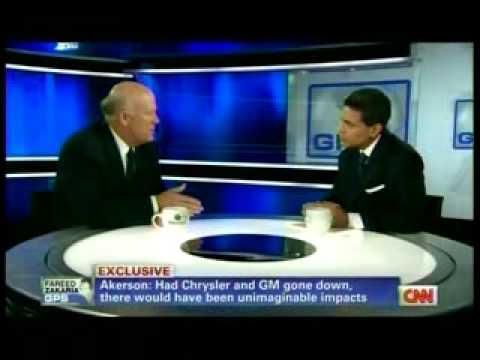

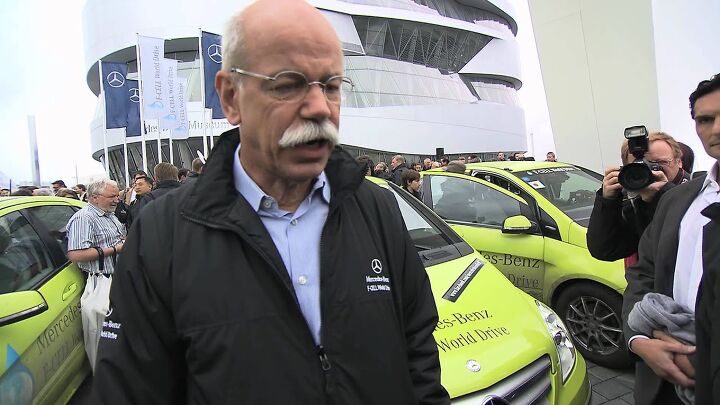
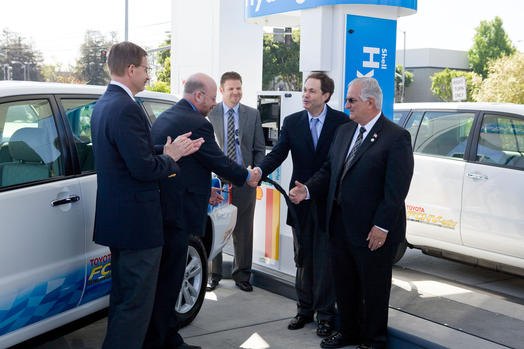
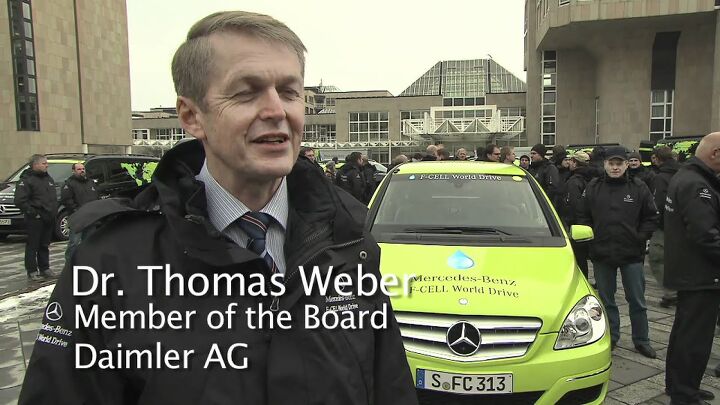
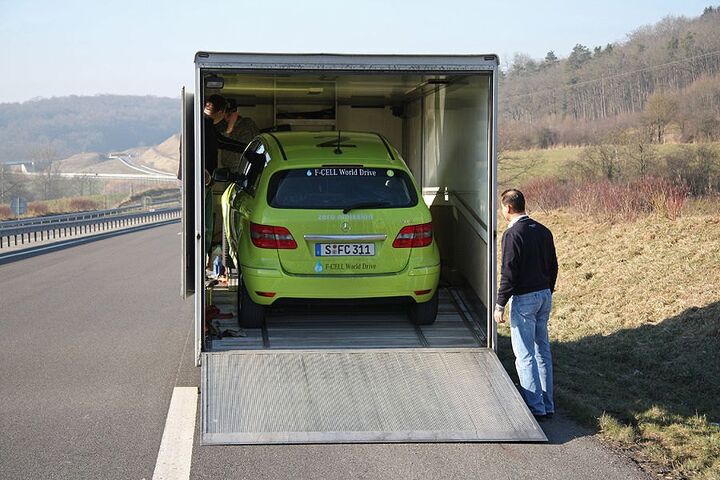
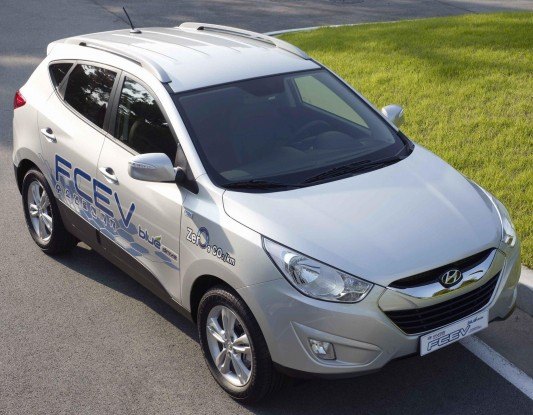
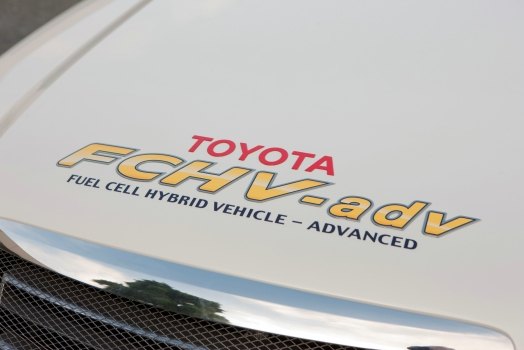


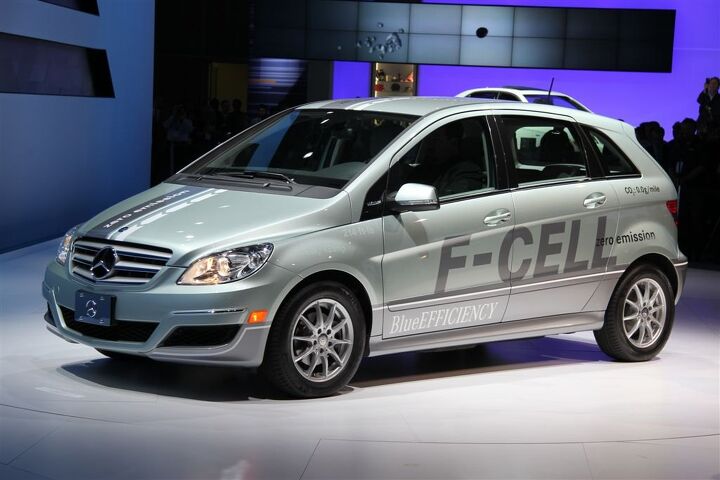

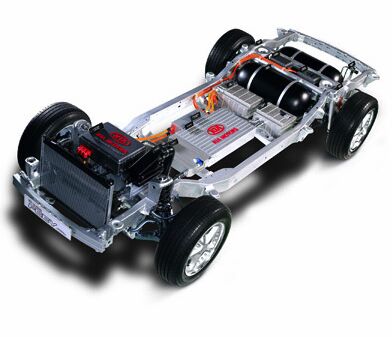
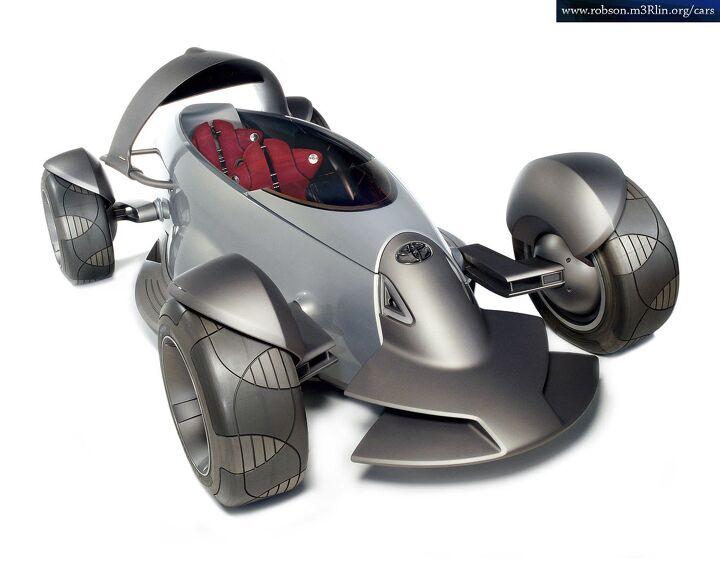












Recent Comments